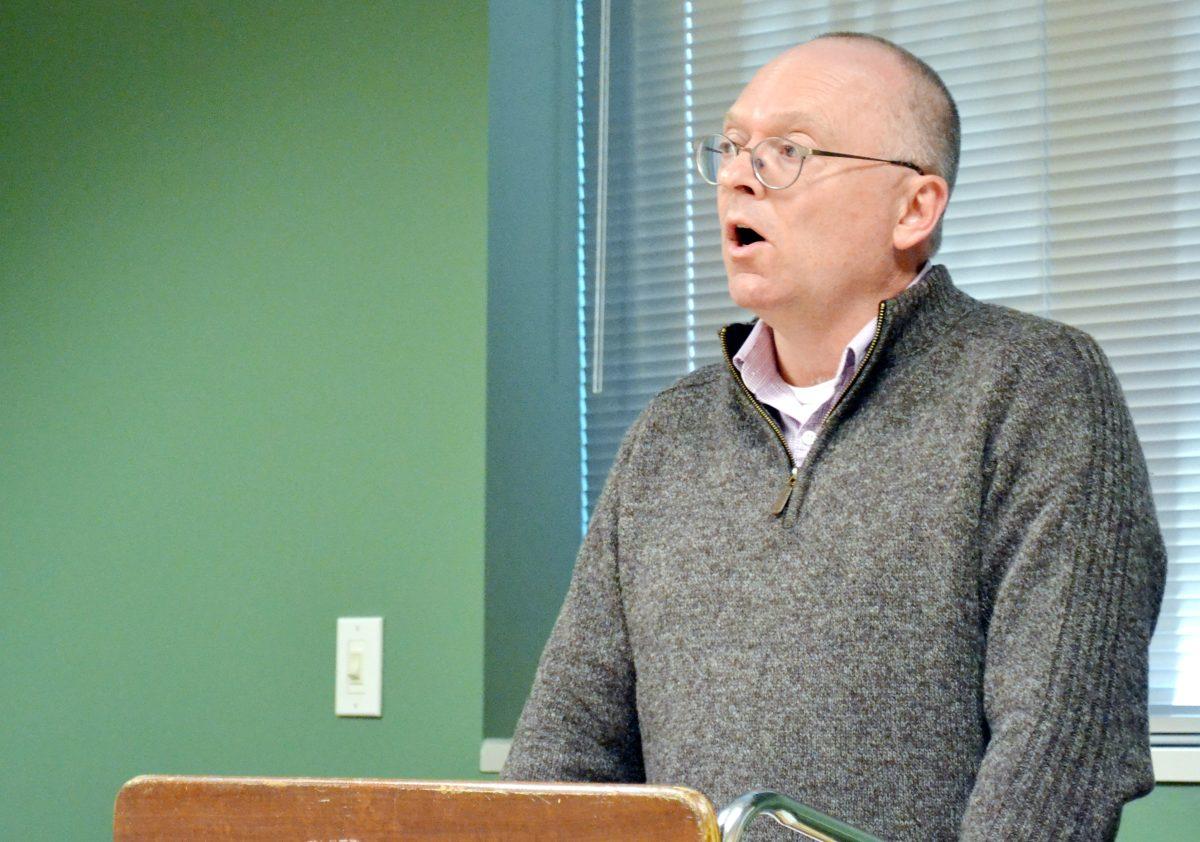Philosophy professor Timothy Hinton discussed the dispute between radicals and liberals through the views of John Rawls, a famous recently deceased professor of politics from Harvard.
The event, titled “The Significance of Rawl’s Original Position in the Dispute between Radicals and Liberals” was a part of the Philosophy Colloquium Series and took place in Withers Hall Thursday.
Michael Pendlebury, the head of the department of philosophy and religious studies, welcomed faculty professors and other guests to hear Hinton’s view on Rawls’ argument. The event, primarily for professors, was open to the public.
Timothy Hinton, an N.C. State professor of philosophy, was the featured speaker of the series event. Hinton also works in political philosophy and is writing a book, which will include a chapter about Rawls.
Hinton said Rawls’ approached the problem of justification and objectivity in political philosophy by explaining his support for liberal freedoms. According to Hinton, liberals have dominated philosophy.
Hinton’s purpose was to give a counter argument to Rawls’ liberal views in political philosophy, which lead to the differences between radicals and liberals.
Hinton also brought attention to the question of race in politics.
Hinton discussed two principles of history that affected the way people viewed justice. One being the ideal historical approach, which is a representation of history where there are no major historical injustices. The other is to offer an account of historical developments between people including racial domination of whites over others.
Through white domination, Hinton said two groups were formed; whites, the people with political power and non-whites the people without political power.
According to Hinton, the racial formation of groups made it harder for individualism to thrive. Hinton said that according to Rawls, individual sovereignty is enjoying the rightful authority over yourself in society, something that can only be done when other people recognize and fully affirm your status as a self-determining individual.
Hinton said new perspectives can be made by being informed of differences between radicals and liberals and that because disagreements are significant, they can lead to a search for more information.
Hinton said it is more important to look at the assumptions people make of one another rather than the disagreements between them.
Hinton said that in order to comply with Rawls’ theory of justice, people have to set aside their basic convictions.
Hinton said when alive, Rawls believed religious intolerance and racial discrimination to be unjust. Based on Rawls’ beliefs said people shouldn’t consider their own values when seeking beliefs including the times they feel hesitant or fearful.
In a counterargument to Rawls, Hinton said people’s principles are basic judgments that should function as a normative argument for the convictions that are set aside.
In a counterargument to Rawls, Hinton said that once you set aside your own beliefs and judgments, new convictions will take the place of past beliefs and become your normal argument.
According to Hinton, this is a way to filter out unreliable or bias reasons that may be proposed to support principles of justice. Hinton said that in Rawls’ argument, the principles of justice couldn’t be justified by morally inaccurate beliefs.
Hinton said there is no need to bother with the constraints of an argument, and it was better to follow your own initial convictions instead.
“Why not make inferences directly from initial convictions?” Hinton asked.
Hinton said that in cases that principles and beliefs clash, people can either modify the account of the situation to fit their principles or can adjust their judgments to fit the situation.
Pendlebury said the event was a way of encouraging people to think in order to become intellectually stronger.
“Speakers in philosophy are always arguing for their own scholarly views and learning from each other,” Pendlebury said.








